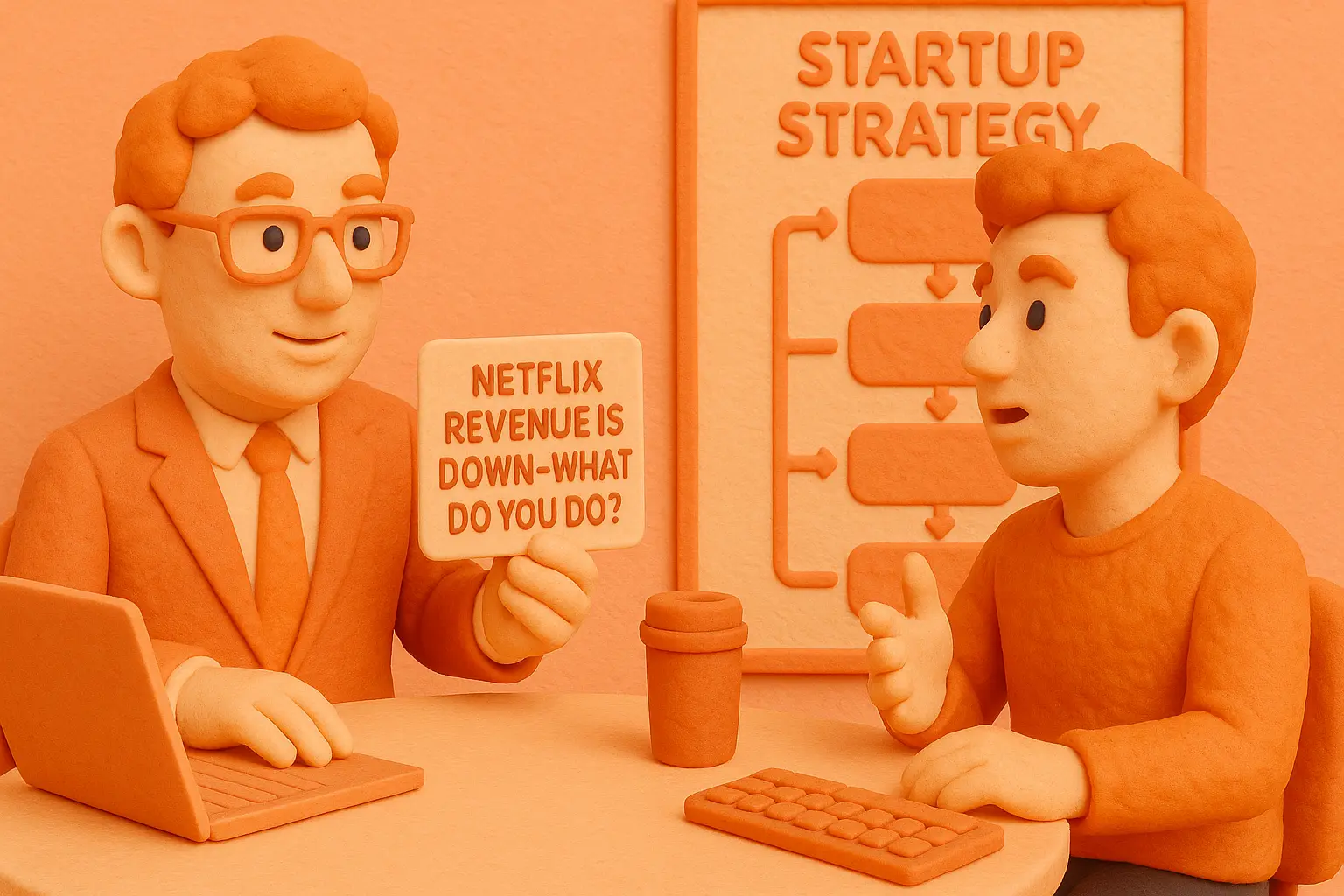


You're sitting in an interview. The recruiter smiles and says:
"Let’s imagine you work at Netflix, and revenue is down. What would you do?"
Not a riddle. Not a trick. Just your classic case interview.
It’s a live problem-solving exercise. You get a semi-realistic scenario (usually related to your field), and you’re expected to work through it on the spot. Out loud. In front of people. Fun, right?
This format is common in the US and Europe, especially for product managers, data analysts, marketers, and other roles where structured thinking matters more than reciting buzzwords.
No pressure.
Here’s a simple structure that works across industries and roles. Save it, share it, tattoo it (optional).
Don’t assume. Don’t guess. Analyze every word in the prompt.
"Revenue is down" - OK, but where? Which product? How much? Since when?
*Better to clarify the obvious than solve the wrong problem.
Once you’ve gathered enough info, paraphrase it to confirm you’re on the same page. For example:
“So we’re solving for revenue drop in product X over the last 3 months. Got it?”
This shows structure and makes you sound like someone who’s worked on real-life messes.
Jumping into the solution too fast is a rookie move. First, lay out your high-level plan and walk your interviewer through it.
Keep circling back to your plan. It shows logic and helps the interviewer follow your thinking.
You can say:
“At this point, I’d explore A, B, and C. Do you want me to go deeper into any of these?”
Any good solution has measurable outcomes. Don’t just say what you’d do, say how you’ll know it worked.
Talk metrics. Talk tracking. Talk validation.
Even better:
Wrap up by mentioning potential risks and alternative paths you’d consider.
Tech skills? Great. SQL wizardry? Love it. But don’t go too deep unless the interviewer wants it.
Focus on clear structure > fancy details.
You can always say:
“I can go deeper technically if helpful, want me to?”
Case interviews aren’t IQ tests. They’re a peek into how you think, structure ideas, and collaborate under pressure. You don’t need to be perfect, just thoughtful and clear.
And if you’re curious how much someone who nails these interviews should be earning...
Case interviews are common in:
Usually 30 to 60 minutes. You may get two mini-cases: one simpler (15–20 mins), one more open-ended (30–40 mins). Some companies mix case questions into traditional interviews.
Don’t just practice generic case questions, look for ones aligned with your role. A product manager’s case will focus more on outcomes; a data analyst’s might go deep into A/B testing or funnel drop-offs.
And hey, once you’ve nailed your prep, make sure your compensation reflects it.
Know your worth with real-time, resume-based salary insights. No guessing. No forms. Just fast, personalized results, completely free.